Double Indemnity (1944)
“How could I have known that murder could sometimes smell like honeysuckle?”
|
Synopsis: |
|
Genres:
Response to Peary’s Review: Typical of most noir, Double Indemnity is, Peary writes, “characterized by the interacting traits of greed, lust, murder, betrayal, and a pervading, oppressive darkness”. We’re not meant to relate to the central characters (who lack any heart or soul), but rather to watch in fascination as their foolhardy, arrogant actions doom them; inevitably, “the hero realizes that he deserves his sorry fate [and] the woman acknowledges she’s no good.” As Peary notes, the “film has no [intentional] humor, but it’s tremendous fun to watch a man so secure in himself… fall into a spider woman’s web”; indeed, part of the genius of the script is watching Stanwyck “subtly stroking [Neff’s] masculine ego” as she “sits back and lets [him] take over and devise the murder plot” himself — he truly digs his own grave. So much has already been written on this “bona-fide cinema masterpiece” — which Peary votes as the Best Picture of the year in his Alternate Oscars book — that I’ll keep my own contribution here to a minimum; instead, I refer interested readers to any of the many fine review links below (as well as Peary’s books, naturally). See Tim Dirks’ Greatest Films website for a blow-by-blow run-through of the film, complete with transcripts of much of its famed dialogue. P.S. It’s impossible to ignore Stanwyck’s undeniably “laughable blond hairstyle” (those bangs!), which immediately evoke images of Carol Burnett’s classic spoof. Redeeming Qualities and Moments:
Must See? Categories
(Listed in 1001 Movies You Must See Before You Die) Links: |
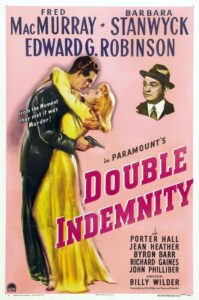
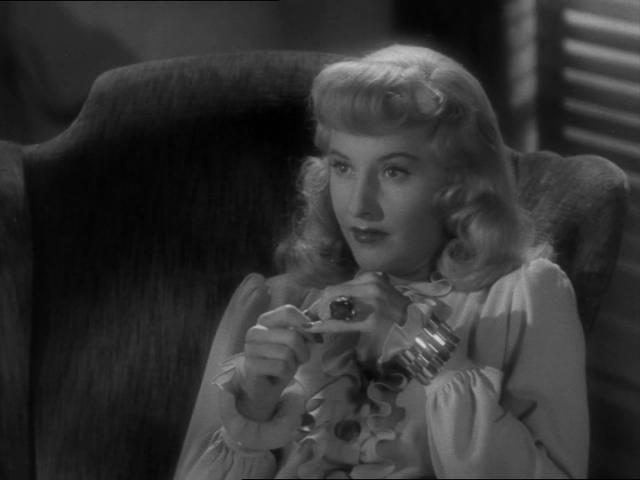
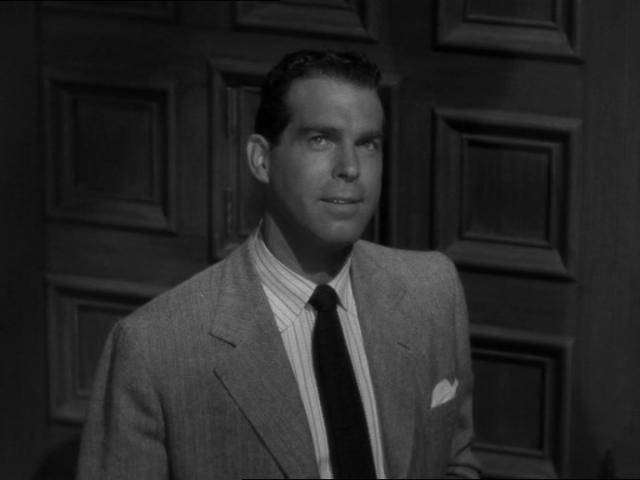
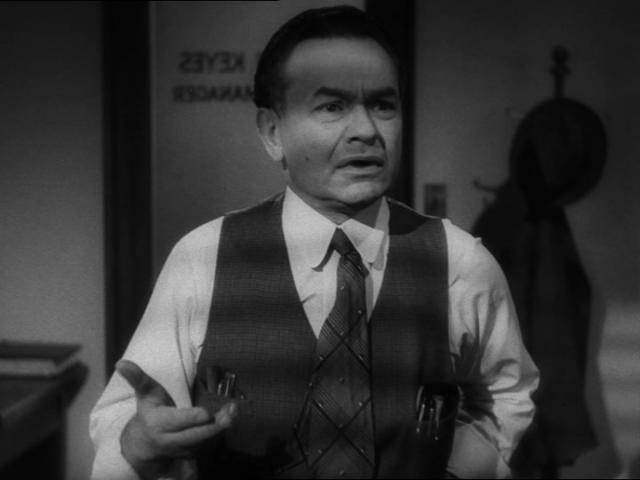
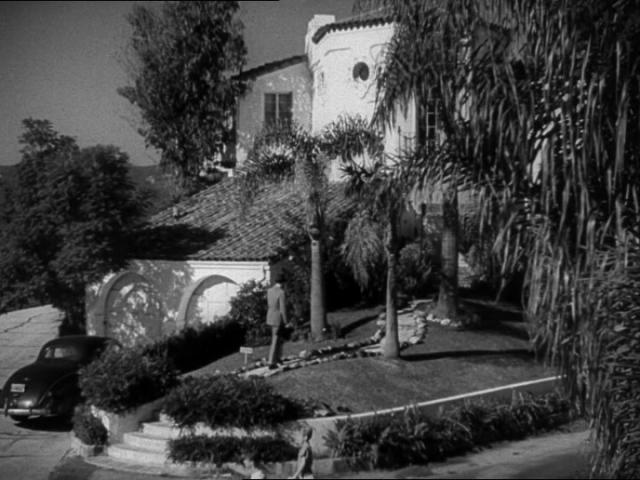
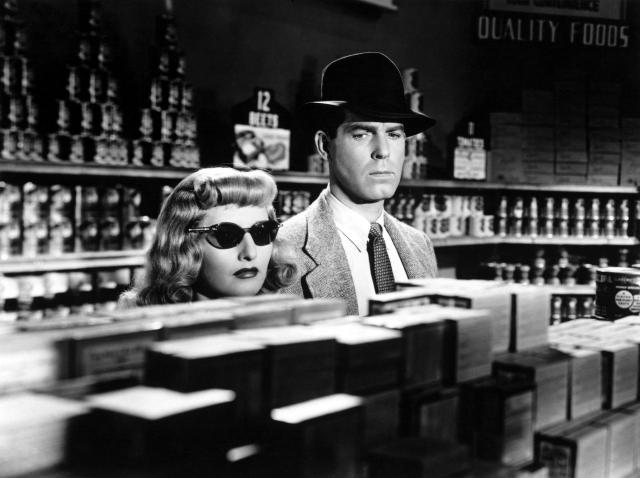
2 thoughts on “Double Indemnity (1944)”
A once-must – for its status as a classic, and for Robinson’s performance (as well as one of Raymond Chandler’s rare contributions to cinema).
That said…this is not a personal favorite among Wilder’s films and, although I think there is good stuff in it, I find it overrated. A number of things about this film bother me as an audience member. Foremost, I dislike the fact that it’s so narration-heavy. Narration in drama is always risky and, I feel, comes off best when handled judiciously. Here, the film is largely driven by the protagonist’s narration – the story hinges on it as necessary for the plot. (‘DI’ bears some resemblance to Wilder’s ‘Sunset Boulevard’ in this regard but the device is handled better in ‘SB’.)
But there’s more.
We’re not supposed to relate to Walter and Phyllis much, and we don’t, and that’s ok. But they’re such boring characters. Even their evilness is lacking in much that’s instructive. Walter is pretty much a lifeless tool (although it’s to his credit that his conscience starts to whip him into more interesting shape as the story develops). And Phyllis is among the least memorable of femme fatales. Bad and completely unflattering hair aside (tho that’s death to a femme fatale), I partly feel that the great Stanwyck is miscast – but I also think it’s not completely her fault: the part is just not that meaty.
My least favorite scenes are the ones taking place in the grocery store – the least convincing-looking grocery store on film, perhaps, and those scenes always bother me tremendously because of that. These scenes are crucial, and yet they always look jarringly inappropriate and fake.
The very best thing about the film is Robinson. Can’t fault him for a second here. His role is written well, his character is interesting and Robinson delivers in his usual dependable way.
As a film, the last 30+ minutes are the best and elements do come together to make this section worth the wait. But this is a film I pretty much never return to, it’s been years – til now – since I’ve seen it and I can’t really place it among the best of noir.
Of course a must-see film. Probably not the best film-noir but certainly the most famous and typical of the genre.
Saw it for the second time recently and enjoyed it just as much as the first time. There are so many classic scenes which are iconic – Barbara Stanwyck hiding behind the door, the ankle bracelet, the supermarket scene with Barbara wearing sun glasses, etc.
One minor thing for me is that the murder plot never seems to be that well thought out and if you think it through it was bound to fail but then again lust will prevent clear thinking.